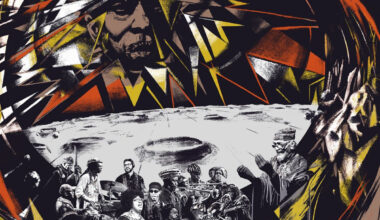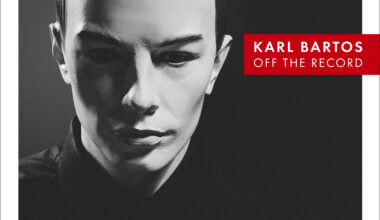Buenos Aires to Berlin via Barcelona, the international duo incorporate Bacchic themes into their second offering

When Friedrich Nietzsche wrote ‘The Birth Of Tragedy Out Of The Spirit Of Music’ in 1872, he noted a distinction in tragic drama between the Apolline and the Dionysiac, a dichotomy based on the opposing yet overlapping characters of the two Greek gods of art. In the Apolline, the individual can feel their edges and be aware of themselves as totally separate from others. In the Dionysiac, the lines blur, the self is forgotten, and there is almost a unity of consciousness between people having this experience. The Greek tragedians became masters of balancing the two elements, and they learned to create in their drama an ebb and flow between both states, evoking an intense emotional response in their audience.
Music, says Nietzsche, traditionally belongs to Apollo, which is why the Greeks composed with carefully defined rhythms regulating their work. The original worshippers of Dionysus – the barbarian Bacchae – had other forms of music, primarily chant-based, which were both terrifying and awe-inspiring to the Apolline Greeks. Put simply, in the Apolline state, man controls sound to make music. In the Dionysiac, the music overwhelms and compels the man.
So what has this rather crude definition of complex philosophical ideas got to do with electronic music in 2015? Well, I’ll tell you: Tomás Nochteff and Carmen Burguess – otherwise known as Mueran Humanos – are back with their second album, and ‘Miseress’ is a fine example of those principles at work. Upping the ante on the industrial front and bringing Einstürzende Neubauten guitarist Jochen Arbeit into the mix have left the duo with a record that appears to stand on the threshold between the Apolline and Dionysiac, incorporating both to form a musical experience as powerful as the original Attic tragedies Nietzsche wrote about.
Both Nochteff and Burguess take on vocal duties in ‘Miseress’, which gives the album a kind of “chorus” effect (in the Greek sense of the word); they also tend to chant rather than actually sing a melody. These incantation-like lyrics are especially important to songs like ‘Mi Auto’ and ‘El Circulo’: the recursive reverberations of this seven minute epic are sure to tease you into a Bacchic frenzy – Dionysus, here we come.
Let’s not forget the Apolline though: the music here is tight and perfectly under the pair’s control, and the regularity of these rhythms sits in constant dialogue with the chaotic synths. ‘Un Lugar Ideal’, for example, is a clear descendent of Can’s 1976 single, ’I Want More’, with its expertly maintained heartbeat crushing up against the wild abandon of the vocals and guitars. ‘Guererro de la Gloria Negativa’ has a regimented, almost gothic, metal vibe to contrast its turbulence – think Rammstein, but in some bizarre alternate universe where they’re being produced by John Foxx.
So is the music actually any good? The short answer is yes. The long answer is oh my god yes. Nochteff and Burguess have made in ‘Miseress’ an album which combines delicacy and power, strength and uncertainty, delirium and dream.





